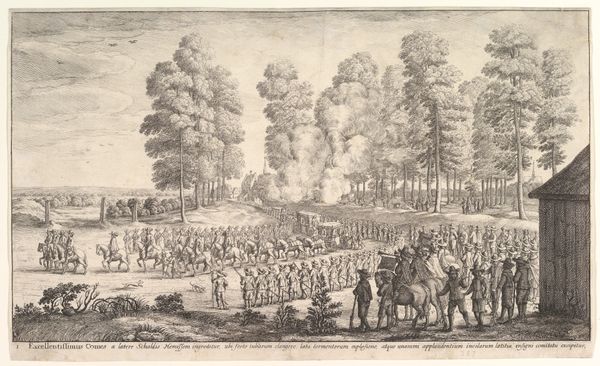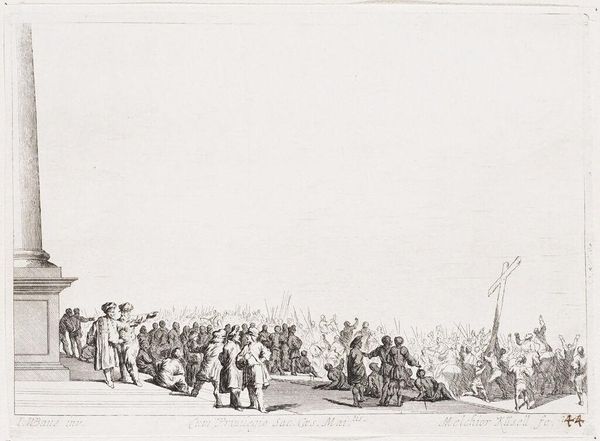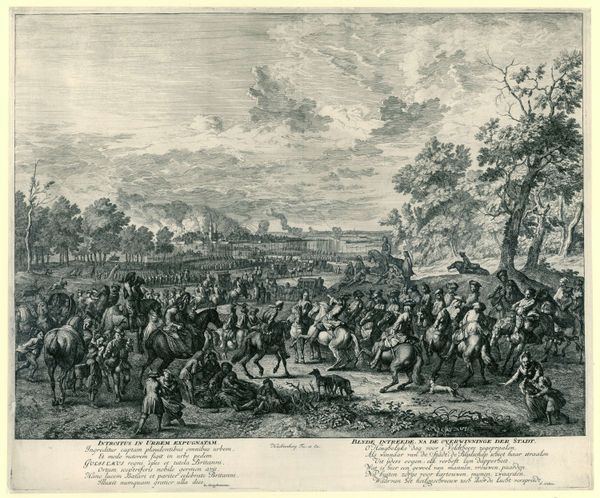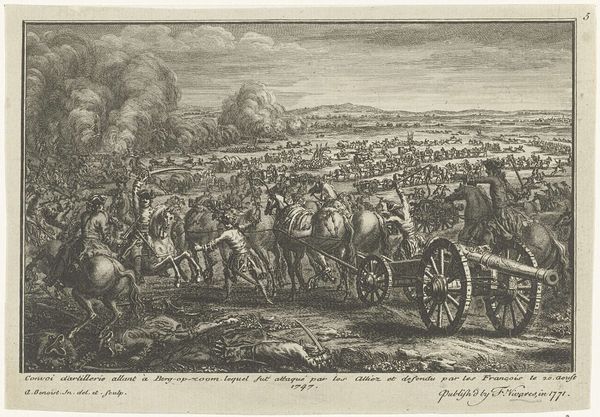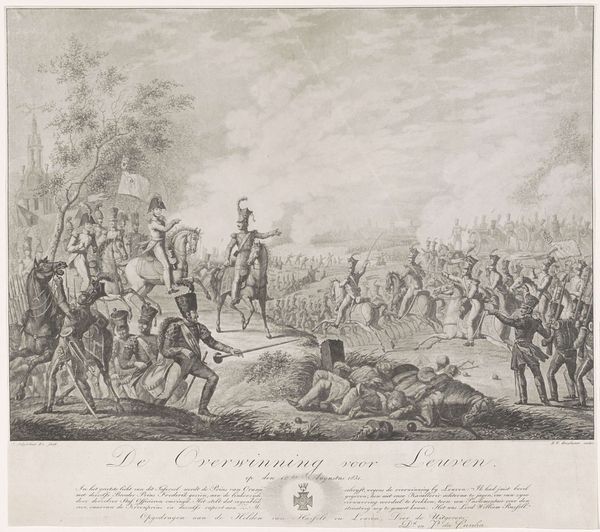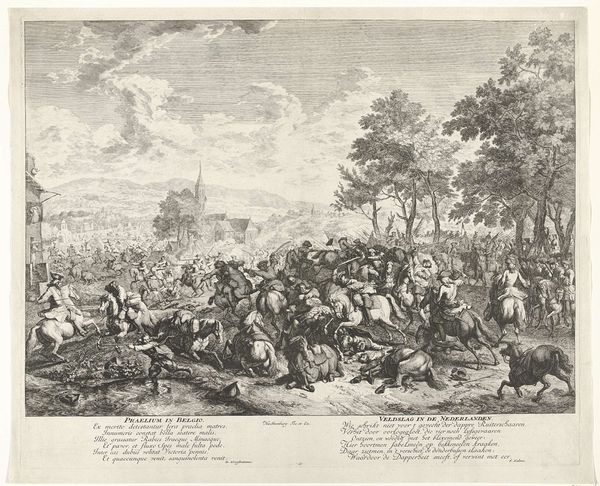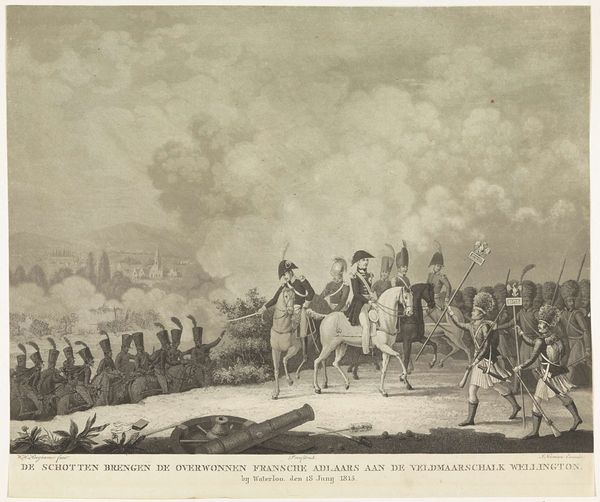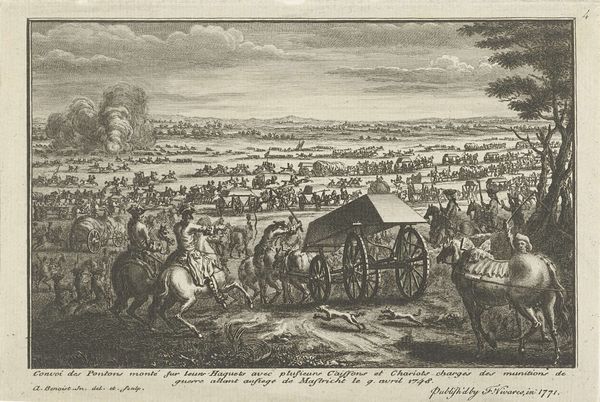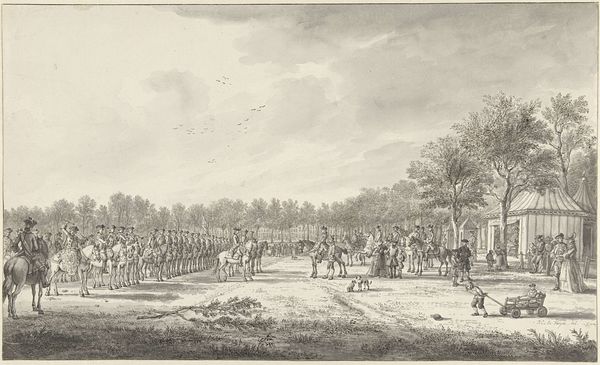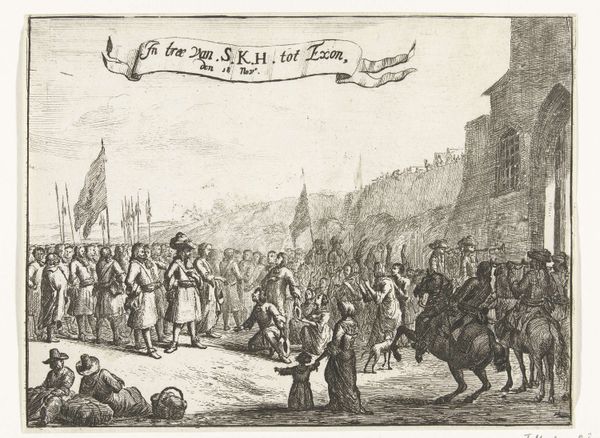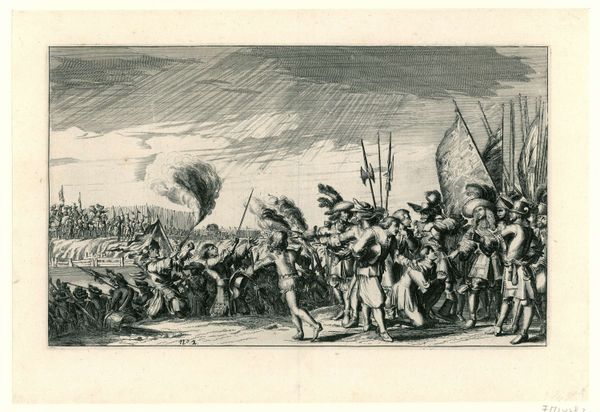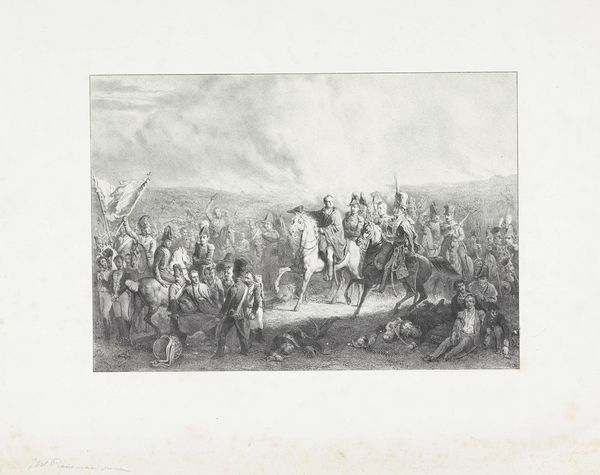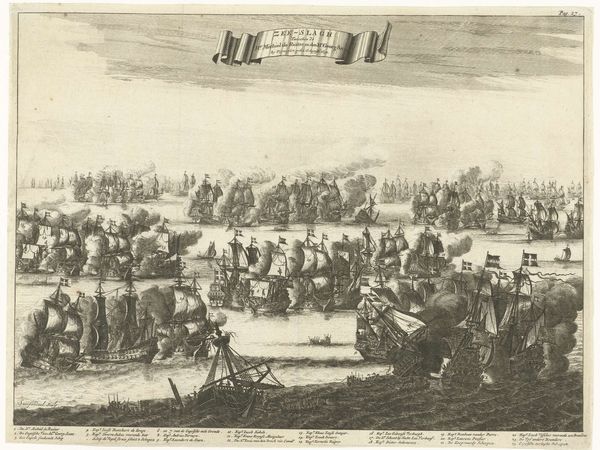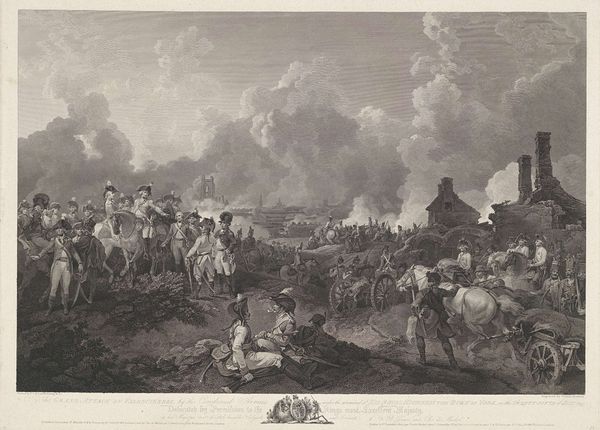
#
landscape illustration sketch
#
light pencil work
#
ink drawing
#
pen sketch
#
pencil sketch
#
ink drawing experimentation
#
pen-ink sketch
#
pencil work
#
fantasy sketch
#
initial sketch
Dimensions: height 354 mm, width 485 mm
Copyright: Rijks Museum: Open Domain
Curator: Looking at Willem Hendrik Hoogkamer’s pen and ink drawing, “Slag bij Hasselt, 1831,” created between 1831 and 1832 and housed at the Rijksmuseum, I’m immediately struck by its density and the dynamic sense of implied movement. Editor: There’s a rawness to it, wouldn’t you say? Beyond just capturing a moment in battle, it feels like a raw, unedited transmission of chaos. The ink bleeds in places, creating a tangible sense of urgency. Curator: Precisely! And I think that rawness lends itself well to the larger cultural narrative. Hoogkamer uses specific visual symbols of military engagement, that go all the way back to classical warfare, like the dying soldiers, to show how history inevitably repeats itself in this landscape. Editor: I'm not so sure about repeating history here; to me, the strength of the work lies in the relationship between positive and negative space. Look at how Hoogkamer renders the plumes, how the contrast suggests fleeting aspirations among such grim circumstances, even down to the materiality of the paper. Curator: I agree about the plume. Its symbolic value, reaching for something beyond survival, provides that small light amidst this horrific engagement. Don't you think this points to the artist attempting to grapple with this complicated piece of Dutch and Belgian history, beyond the violence of the conflict itself? Editor: Yes, there is that element of narrative for sure, even the puffs of smoke have weight here. Still, as a historical document of that specific moment, I see more how the composition holds up and communicates meaning rather than as a symbolic image carrying pre-existing connotations. Curator: Ultimately, it's this interplay of symbolic depiction of conflict combined with these fleeting details of material circumstance and individual stories which grants "Slag bij Hasselt, 1831" such enduring power. Editor: I have to agree. I think both our views can coexist to give the work its richness: the immediacy of Hoogkamer’s compositional choices alongside the historic conflict.
Comments
No comments
Be the first to comment and join the conversation on the ultimate creative platform.
